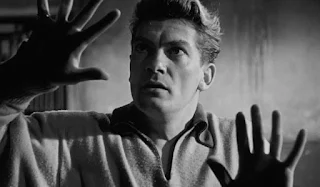I have a passion for old newspapers, which is one of the reasons I love the internet. You can find old newspapers all over the internet. It is as if all the old birdcages have shed their papers, for here is the news from London in 1778 to Paris in 1947. No longer does one need to get up, go down to the library, and search out the musty, lumbering volumes in the periodicals section, where the old paper dies a little every day. The internet is to the periodicals section as the book of forensic photographs is to the morgue: the bodies are in the latter, but the former captures their looks in their last agony.
What I especially like are the legendary papers: among which surely counts Ce Soir. It was set up with Louis Aragon as its editor in the mid 30s. It was supposed to be a communist paper, but it was as communist as Louis Aragon – which is to say that it would mouth communist verities, but its heart was in the intersection between the sensational and the glamorous. Full of great and gory murders, starlets running off with tycoons, and foreign correspondents reporting from distant battlefields, with the print flowing around big bold photographs, the newspaper looked exciting – an art lost in our time, with the bland layouts of all the serious papers. Even the tabloids don’t quite have that Weegeeish look. Aragon had certain of his buddies write for the rag: for instance, Jean Renoir, the great director, who had a regular column. Jean Cocteau also had a column. I came across one of Cocteau’s pieces, The Branch of the Orange Tree, and looked around to see if it had been translated. It should have been. A short piece – this was after all a newspaper – it read like a premonition for his Orpheus film. Yet I couldn’t find the translation, so I thought: I’ll do it. Why not?
The Orange Tree Branch
Since the existence of time-lapse documentary films (films of the lives of plants), it is impossible to walk in a garden without an uneasy feeling, or to lean over the flowers with the soul of a young girl. Nothing is crueler than the plant world, or more erotic. A German film, which was banned by the French censors (certain passages in the film recall those movies that they show in Marseilles in certain seedy venues) denounces the horrifying habits, the mad mecanisms of a realm that man had previously believed to be immobile and uniquely preoccupied with pleasing us. The science and patience of the makers of the film, which let a plant live in its own rhythm and then brought it up to ours by accelerating it, proves just how unconscious man is.The results of their espionage work would astonish the romanticism that sings “phlegm”, the haughty attitude of nature and would furnish new bases for its inspiration. For it is not only an affair of a difference of rhythm, speed, “tempo”. The secret has been well guarded. Thanks to the extraordinary slowness of the gestures of a tree in comparison to ours, a park could lead a ferocious life under our eyes, a curate’s garden could make love, do its make up and its murders without anyone having a clue.In fact, no witch’s sabbat equals what happens in these gardens where the vegetation overlaps. A prodigious erotic activity directs the flows of life and the explosive pollen. The stems curl, the petals grimace, roll out and in, the leaves contract and the scents, the nuances that transport beautiful dreamers appear to us suddenly like the violent signs of an erotic fever.At Promousquier where I live, I see outside my window, on the little terrassed plot that juts out over the sea, three orange trees. These are old acquaintances. After eighteen years (I think of them and ask myself – are they still living) I always come back to them with emotion. They were in their pots and now they have been planted in the earth, in the same place.These wild oranges have little by little ceased to be wild. They’ve been domesticated. Certainly the oranges they bear are bitter, but the flowers emit a powerful scent. Not having to defend themselves against mouths and muzzles, the branches only grow rare and short thorns. Certain branches are defiant, but the majority have renounced these habits.And now, now the films that I mentioned have put us on guard and made us look at bushes in another way concerning a strange detail which teaches us something about the intelligence of the vegetable kingdom. Not that we have to suppose that the plants are geniuses because they astonish us with their obscure mecanisms. I will continue to be very simple about this. A palm tree keeps the sunlight off one of my little orange bushes. Alas! I pruned back the palm tree too late. The branch died. But hardly did it feel itself in danger when it “defended itself with all its forces”, silently, blindly. For, alone of all the branches of this orange tree, this branch boasted thorns as long as my finger. Thus, it told me of its struggle. I leave to the readers, to those who love trees, and who are intrigued by nature, this mysterious witness of a struggle against the unknown. A bitter, solitary fight, which recalls Daudet’s story of the fight between M. Seguin’s goat and the wolf.





